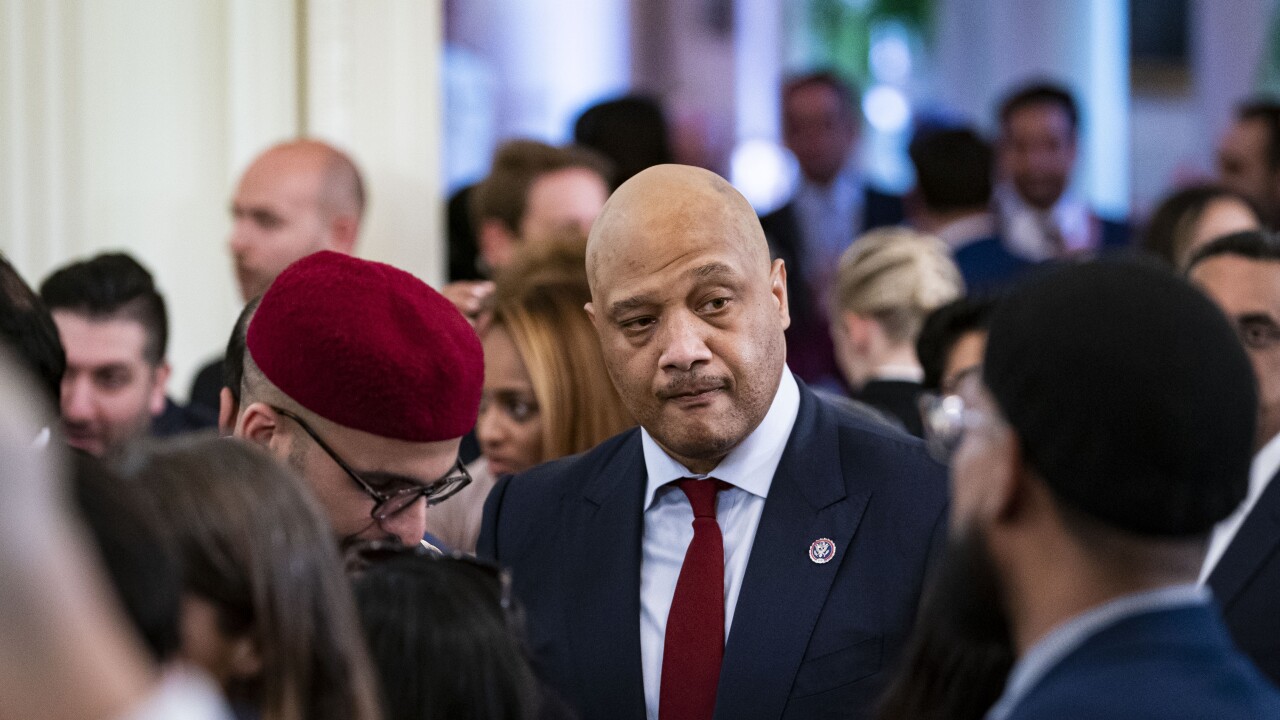THE WOODLANDS, Tex. - Developing a prepaid market for electricity among public utilities will take more time and effort than it took to create a similar market for long-term natural gas contracts. But there is a place for locking in electricity purchases over several years, experts told The Bond Buyer's third annual Prepaid Energy Contracts Conference here.
Since 2003, when Internal Revenue Service rulings opened the door to tax-exempt bond financing of long-term energy contracts, public utilities have done 33 prepaid gas deals worth $23 billion, said Mark Shea, principal at Banc of America Securities LLC. Over the same period of time, public utilities have done only three prepaid electricity deals worth $1.8 billion, despite the fact that the largest public electric utility represents 3.5 times the revenue of the largest gas utility, he said.
Furthermore, revenues for the top 10 public electric utilities represent more than six times the revenue of the top 10 gas utilities, Shea said.
"So what's going on? You've got six times the market but a 10th of the volume [of prepaid deals]," he said. "Something's strange there."
The answer, Shea and others say, is the fact that electric utilities prefer to own their generating capacity financed by tax-exempt bonds. Public utilities "self-generate 94% of what they sell," Shea noted.
Natural gas is a commodity with a well-established history of futures trading, and the major investment banks are comfortable dealing in that market, according to Shea. Both the traders and the utilities are comfortable with anticipating prices 20 or 30 years into the future, he said.
Electricity, on the other hand, cannot be stored and is a "use-it-or-lose-it" commodity. Anticipating prices into the future is difficult and fraught with risks, experts say. The electricity market is still undergoing deregulation and has the risk of carbon emissions regulation hanging over it.
What history there is in electricity trading is tarnished by the debacle of Enron, noted David Fife, senior vice president of the energy finance group at Seattle-Northwest Securities Corp.
"We had the Enron blow-up in addition to the new mess in the market," he said, referring to recent turmoil in the bond market.
Despite the problems of prepaid electricity, Fife said he considers himself an optimist about the future of the industry, particularly in the development of alternative energy production. Burbank, Calif., is working on a deal to prepay for wind energy generated in Utah, he said.
William McBride, a partner with Hunton & Williams LLP and a member of the panel, said prepaid electricity contracts could serve as construction capital financing for alternative energy facilities.
Of the three prepaid electricity deals done so far, the longest has been Memphis Light, Gas and Water's $1.4 billion deal with the Tennessee Valley Authority in December 2003. The shortest is Fayetteville, N.C.'s two-year, $142 million deal in November 2005. American Municipal Power-Ohio Inc. has the most recent, a $308 million, six-year deal with Goldman, Sachs & Co.'s subsidiary J. Aron as the supplier.
Robert W. Trippe, vice president and chief financial officer of AMP-Ohio, said his utility - which serves 123 public power systems in Ohio, Michigan, Pennsylvania, West Virginia, Virginia, and Kentucky - is "heavily dependent on purchased power."
"Our members are asking for price stability and price certainty," he said.
Although AMP has been interested in prepaid electricity since 2003, the deal did not come about until 2007. The utility decided to seek out a commodity provider rated single-A or double-A by the credit agencies, rather than investor-owned utilities that are typically rated in the triple-B range, according to Trippe.
He said he would have preferred a term longer than six years, but that finding a commodity provider willing to enter into a contract of 10 years or longer is unlikely.
"It would be particularly difficult with some of the investment banking firms today," Tripple said. "We think there are substantial savings if we could get another one done. But it was a time-consuming process, and the cost of issuance was high across the board."
Several panelists agreed that the electricity prepay market would benefit from further development of the commodity swap markets for electricity, but no one was certain when such development would occur.





